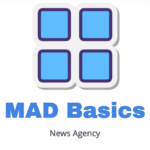What comes to mind when you think about graphic designers? Creative-looking, trendy folks holding a tablet in one hand and a pen in the other? In a dimly lit area, a lone professional utilizing design software? A creator?
Read More: graphic design
Furthermore, what exactly does graphic design mean? captivating images on websites? Even though it is within the purview of what a graphic designer may produce, there are a wide range of activities that could be part of a graphic design job. The list is endless and includes infographics, book covers, posters, business cards, signage, logos, website layouts, mobile applications, and software interfaces.
“We often take for granted the numerous subtle artistic elements in our environment,” says Jacob Smith, the creator of the illustration firm ProductViz. However, a set of design principles that shape our views may be found concealed in every magazine, exit sign, and textbook.
Graphic designers strive to convey concepts visually, influencing audience perception and providing information. The majority of graphic designers provide graphics for clients or businesses in order to meet predetermined goals. Artists are frequently also regarded as graphic designers.
The graphic design industry is quite large. And there are a ton of possibilities to consider if you have any interest in working as a graphic designer professionally!
What is graphic design, first of all?
The American Institute of Graphic Arts (AIGA®) defines graphic design as “the art and practice of planning and projecting ideas and experiences with visual and textual content.” To put it simply, graphic designers create images that convey certain meanings. These images might be as straightforward as a company logo or as intricate as a website’s page layouts.
Graphic designer Alexandros Clufetos states that “graphic design helps the producer connect with the consumer.” “It communicates the project, event, campaign, or product’s message.”
Businesses employ the visual principles of graphic design for a variety of purposes, including developing a corporate identity, promoting and selling items through advertising, and presenting complex information in an understandable style (think infographics).
Although the majority of businesses employ graphic designers for business-related needs, many designers also utilize their profession as a means of artistic expression.
Which components make up graphic design?
A graphic designer uses specific visual components to construct their work. These components can be used in contrast to or in combination by graphic designers to produce visually arresting and powerful images.
What is the work of a graphic designer?
People with nearly every kind of interest can find chances and alternatives in graphic design. A career in graphic design may allow you to work on a variety of projects or focus on just one subject that you are passionate about.
Here’s a peek of the type of jobs a graphic designer could work on.
Design of websites
Create interesting and straightforward web pages for users. This covers the color palette, navigation, and general layout.
If you’ve ever visited a website that is confusing, hides critical information, or is so disorganized that it’s difficult to browse, you will see why web design professions are so crucial!
Design for user experience (UX)
Make an application or website user-friendly and enjoyable. Value, usefulness, adoptability, and attractiveness are prioritized by these designers. This kind of labor may be extremely creative (taking into account every aspect of how people engage with your platform) or highly technical (programming every path through a site).
Design of user interfaces (UI)
The ultimate objective shared by UX and UI designers is to create user-friendly interfaces. The application’s visual design and layout are part of the interface component. Because of this, UI design may be a fantastic vocation for graphic artists.
Design of motion graphics
Motion graphic designers and animators use special effects, video, TV series, video games, movies, and other media to bring visual components to life.
Advertising is starting to use more and more animation and video components, and motion graphics artists are skilled in those areas.
Design for print media
Print media is ubiquitous and may be seen in billboards, brochures, textbooks, restaurant menus, signs, and print advertisements. It needed to be designed, too!
Print visual communication may take many different forms. For example, it might be a stunning catalog that inspires readers to learn about the plants they might buy or a sequence of signs directing passengers through a bewildering airport terminal.
Although they are also physical, user interfaces are typically thought of as digital.
All types of marketing materials
Ads that are visually attractive are produced by graphic designers for practically every business. A healthcare graphic designer can be involved in a commercial promoting the launch of a new clinic. A manufacturing graphic designer may produce a brochure explaining their equipment to companies that are thinking about making a purchase.
Is the market for graphic design steady?
New careers in graphic design have emerged along with the introduction of new forms of graphic design by technical breakthroughs. On the other hand, you could be concerned about the future of the field given the growth of AI.
The Bureau of Labor Statistics (BLS) projects a 3% growth in graphic designer employment between 2022 and 2032.1 This rate of growth is comparable to the average growth rate across all occupations. During the next ten years, the BLS anticipates 22,800 annual vacancies for graphic designers on average.1
According to the BLS, businesses that provide specialized design services as well as advertising, public relations, and associated services are the biggest employers of graphic designers.1
It’s not as simple as some would imagine to replace graphic design abilities. Effective visual media must connect with its viewers in order to motivate action; it cannot only look good. The introduction of graphic design AI has many graphic designers thrilled because they see opportunities for it to automate tedious parts of their work.
